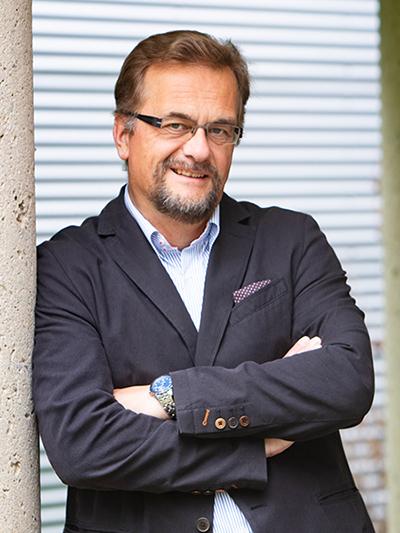Marcel Schlaf

Find Related People by Keyword
Instrumentation & Capabilities
Chemical synthesis of a broad range of organic, inorganic and organometallic compounds and transition metal complexes.
Catalyst design, synthesis and testing with reaction chemistry under extreme conditions.
Qualitative and quantitative chemical analysis of compounds and complex reaction mixtures by a variety of techniques (GC, GC-MS, NMR, UV-VIS, IR, HPLC-RI/UV, etc.)
Corrosion resistant Hastelloy high-pressure reactors (100 & 300 mL) located in a dedicated explosion-proof facility enable reactions at temperatures up to 723 K (450 °C) and hydrogen pressures of up to 31 MPa (~ 4,500 psi) and/or sub-/super-critical water.
Thermodynamic, kinetic and in silico analysis of reaction manifolds and mechanisms.
Education and Employment Background
Originally from Germany, Dr. Marcel Schlaf received the degree of Diplom-Chemiker from the Bayerische Julius-Maximilian Universität (Würzburg, Bavaria) in 1992 and his PhD in Inorganic Chemistry from the University of Toronto in 1996. Following two NSERC post-doctoral fellow positions—one at the University of Ottawa and one at Brookhaven National Laboratory in the USA—Schlaf joined the Department of Chemistry at the University of Guelph in 1999. He is now a full professor and the graduate coordinator for the Department of Chemistry.
Research Themes
Schlaf’s research is focused on developing new catalysts and processes for the hydrodeoxygenation (HDO) of biomass-derived sugars and sugar derivatives to sustainable chemicals. His research group addresses questions of fundamental reaction chemistry, catalyst design and synthesis, and practical chemical engineering. Schlaf and his team aim to develop new synthetic methodologies for the selective transformation of hydroxyl functions in naturally abundant polyalcohols and monosaccharides using heterogeneous and rationally designed homogeneous transition metal catalysts. Specific research themes include:
- Controlled catalytic deoxygenation of sugars and sugar polyols to alkenes, alkanes, oxacycles, diols, and triols as polymer components using hydrogenation and hydrogenolysis catalysts. The central hypothesis of this research is that it is possible to either use extant heterogeneous catalysts or rationally design, synthesize, and characterize homogeneous ruthenium- and/or iridium-based catalyst that are acid-, water- and high temperature stable (>> 150 °C) and active in the selective deoxygenation of biomass derived sugar condensates or poly-alcohols like, levulinic acid, furfural, 5-hydroxy-methyl-furfural, erythritol, xylitol, sorbitol, etc., to petrochemicals (diols, triols, oxacycles and ethers as polymer components and solvents) and fuels that are equivalent to gasoline, Jet-A and Diesel.
- Development of new ligands and transition metal complex based hydrodeoxygenation catalysts with high stability for processes in aqueous acidic media at elevated temperature.
- Development of analytical protocols for the quantitative analysis of the reaction mixtures resulting from these reactions.
Highlights
- NSERC Discovery Grant, 2018-2023
- Visiting Faculty at Dalian Institute for Chemical Physics (Chinese Academy of Sciences), 2015-2019
- Scientific organizing committee member for CATBIOR 2017 (Lyon, France) and the 2nd Bauxite Residue Valorisation and Best Practices Conference (Athens, Greece).
- Two volume edited book (with Z. Conrad Zhang; Springer 2015) entitled “Reaction Pathways and Mechanisms in Thermocatalytic Biomass Conversion Volume I & II.”
Media Coverage
- U of G, CEPS: Catalysts for Change